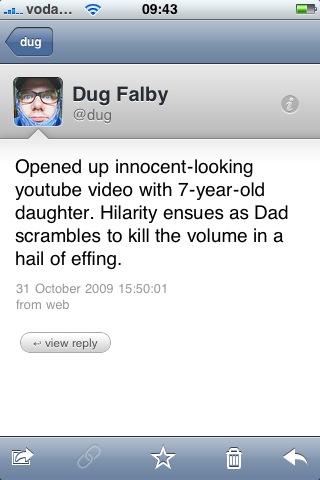CU-1’s school has just finished a session of National anti-bullying week events. As part of the project, she was asked to research the background to bullying and as I helped her develop her Googling skills, we came across the following:
Who gets bullied and why?
There are many reasons how and why bullies target others, so how do bullies select their targets? The bully selects their target using the following criteria:Jealousy (of relationships and perceived exclusion therefrom) and envy (of talents, abilities, circumstances or possessions) are strong motivators of bullying. (from this site)
- bullies are predatory and opportunistic - you just happen to be in the wrong place at the wrong time; this is always the main reason - investigation will reveal a string of predecessors, and you will have a string of successors
- being good at your job, often excelling
- being popular with people (colleagues, customers, clients, pupils, parents, patients, etc)
- more than anything else, the bully fears exposure of his/her inadequacy and incompetence; your presence, popularity and competence unknowingly and unwittingly fuel that fear
- being the expert and the person to whom others come for advice, either personal or professional (ie you get more attention than the bully)
- having a well-defined set of values which you are unwilling to compromise
- having a strong sense of integrity (bullies despise integrity, for they have none, and seem compelled to destroy anyone who has integrity)
- having at least one vulnerability that can be exploited
- being too old or too expensive (usually both)
- refusing to join an established clique
- showing independence of thought or deed
- refusing to become a corporate clone and drone
This really stood out because it appeared to be written with the context of the adult’s place of work as well as the child’s primary school. This list exposes an interesting challenge to any senior manager trying to be competitive by recruiting and retaining the best talent:
The best managers hire people who are better than them. Of course “better” doesn’t mean “better at their job”–a great design authority might not make a great leader of designers.
The pressure on design executives is that as their recruits demonstrate talent and grow their independence it becomes increasingly likely managers will feel threatened and resort to bullying tactics (whether consciously or not).
I guess the food chain works the same way in the school courtyard and the corporate boardroom, leaders need strong self-belief.


 Suprises
Suprises